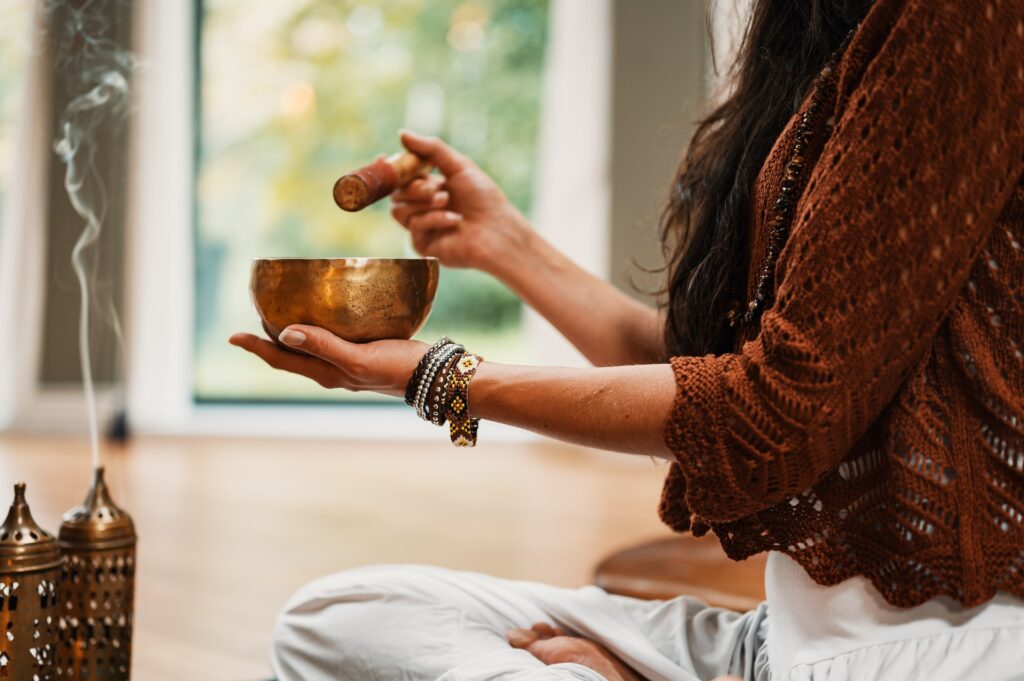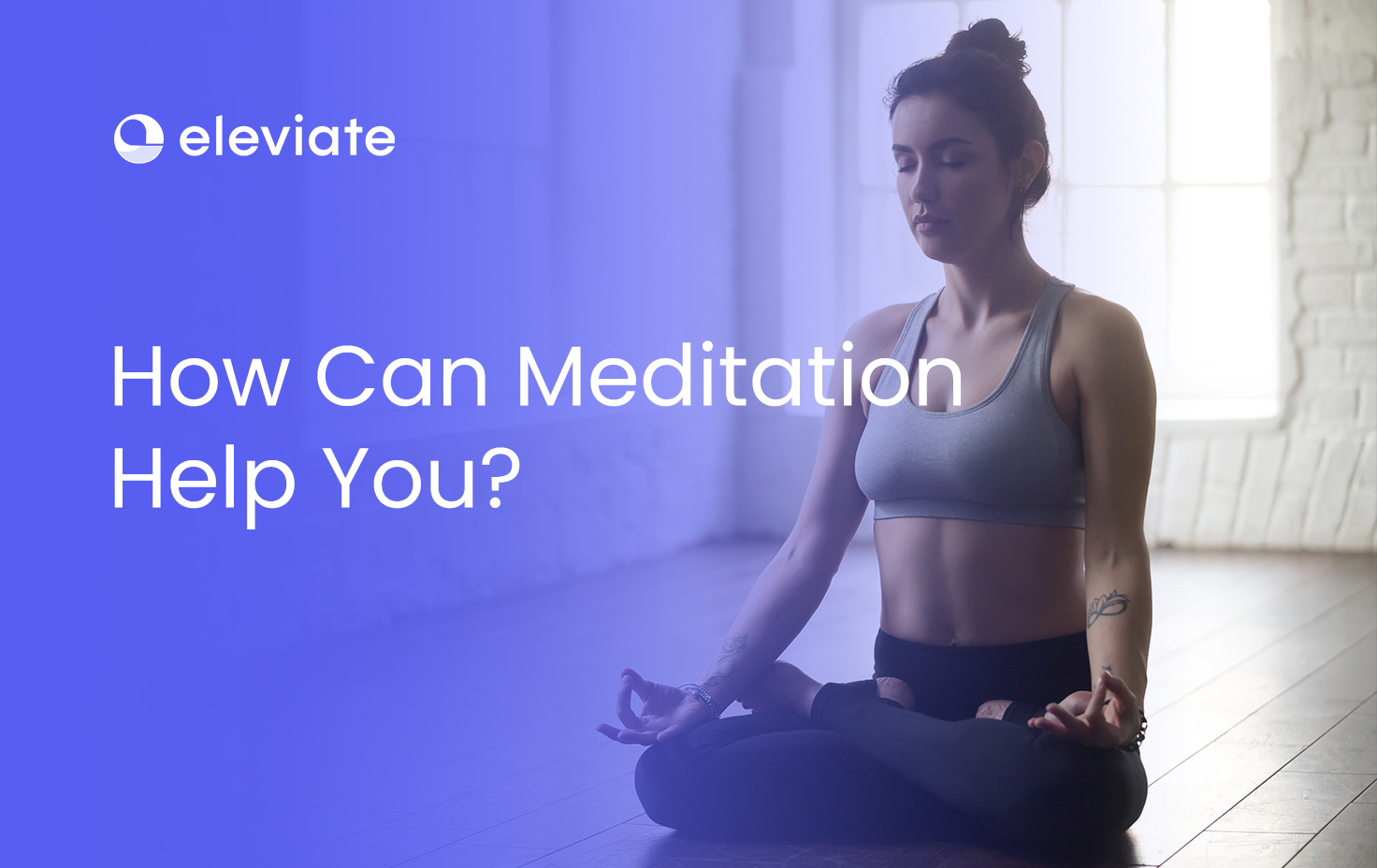Despite its perks and advantages, modern life can be chaotic and stressful. Thus, seeking effective ways to unwind and relax is natural. Meditation is often presented as the ultimate form of relaxation, and most people decide to start the meditation practice based on an incomplete assumption.Regular practice is known to have countless benefits for your physical body and mind. However, it takes the complete realisation of what you are going through during the practice to fully grasp the meditation experience and the positive effect it has on you. Should you be interested in how to enhance your well-being, detect the most common signs of proper meditation and have a clear idea of what is happening to you when you meditate, you have come to the right place.
What is meditation and how can it help?
The chances are that you have already heard a thing or two about meditation. Yet, before you start meditating, it helps to dive a little deeper into the matter and define the practice precisely. Meditation is one of the awareness and mindfulness practices that help you clear your mind with the help of your body and different mental techniques. You should realise that there are different types of meditation practices. Some aim at complete relaxation, while others focus on anxiety and stress reduction. Besides, you can also aim to improve your health through practice.

Primary benefits of meditating
Usually, people discard meditation since they don’t have a clear idea of what it can bring into life. The better you are aware of what regular meditation practice can offer, the easier it will be to master it.
Stress reduction
Depression management
Blood pressure reduction
Hearth health improvement
Healing promotion and cell regeneration
Improved sleep patterns
Enhanced productivity and creativity
Increased life expectancy
Utter relaxation and bliss
Where does meditation practice come from?
If you are serious about meditation, you may wonder how old the practice is. The truth is, there isn’t a single answer to the question. Surely, the practice is centuries-old, but the main part depends on the definition of the concept. Modern scholars point out two main schools of meditative practices. One comes from India, the other – from China.
If we speak about Indian meditation experiences, the first mention of the practice dates back to 1500 BCE. However, during those days, meditation was referred to as the training of the mind. As for the Chinese mentions of the practice, they go as far back as the 3rd and 6th centuries BC. Mostly, meditation is related to the practice of Daoism.
Even with these dates at hand, it is still quite impossible to determine when the practice came into the world. Some sources claim that it is as old as the whole universe itself, and there is a great possibility that it is true. The same foggy claims refer to the notion of who founded meditation. Yet, there are a few names to memorise if you take meditation practice seriously.
The Buddha – an Indian prince who chose to become a philosopher, preacher, and monk, became the founder of Buddhism. While his teachings imply a profound relation to mindfulness and meditative experiences, he wasn’t the original inventor of the practice.
Lao-Tze – was an ancient philosopher from China who created the system of Taoism. The practice, in its turn, is based on meditative practices.
Dosho – a Japanese monk who studied Buddhism and brought Zen to Japan. He was the first one to open a meditation school with a precise focus on sitting meditation.
What does meditating feel like?
Whether it is your first time meditating or you have been in the field for a while now, it helps to understand what to expect from the practice. However, there isn’t a single answer to the question of what meditation feels like. The best suggestion would be to state that it does not feel like anything. Yet, it should be pointed out that, in its nature, meditation is a precise analysis of your physical body, inner self, and deep inner self. What does that mean? While your body is nothing but a tangible representation of you, the inner faculty is all about your consciousness, which is constantly changing. Consciousness is known to consist of your mind – the way you process all sensory experiences; intellect – the way you weigh out all the feelings and experiences; ego – the you and the Chitta – all your memories and impressions that build up over the course of your life.
Finally, the deep inner self is also about consciousness, but the stable one, the one that does not change. It is usually described as the primary source of knowledge, intelligence, and creativity. When you put all the components together, you will realise that meditation isn’t something stable. Depending upon your experiences and feelings that alter from day to day, the practice will feel different every time you practice it.

What feelings during meditation can you expect?
We have already pointed out that when you start to meditate, you won’t be able to describe the experience in one word. However, there are a few common signs that will notify you that you are going in the right direction and that the practice is actually working. They are the following:
Sleepiness
Confusion
Feeling of “explosion”
Agitation
Boredom
Inspiration
Peacefulness
Bliss
Awe
Stillness
1) Sleepiness
People often set incredible expectations when they are about to start their meditation journey. While it is completely normal, you should know that feeling like you are about to fall asleep is okay during meditation. The critical point to understand is that when you meditate, your body relaxes, and becoming groggy is yet a natural reaction to expect. So, it is critical that you don’t get angry with yourself and quit the first time you try to practice.
2) Confusion
Another quite common feeling to deal with when you start meditating is confusion. Things like that happen because you are new to the field, and you have a vague idea of what you are doing and how you should do it properly. There are two ways you can deal with the matter. If you prefer to skip a meditation teacher, you should just let it be and continue down the path to awareness. However, should you feel like the utter feeling of dullness overcomes you, it would be a great choice to try some of the available guided meditations just to point you in the right direction.
3) Feeling of explosion
When you sit down to meditate, the chances are that you want to experience the lightness and joy of utmost relaxation. Nevertheless, your body and mind can have a surprise for you. Whenever you put yourself through a lot of stress, the accumulation of it will spill over during the meditation session. Such instances will make you feel grand “explosions,” which might be overwhelming. Sometimes people feel like they are going down a vortex. They start to sweat and get lost in the whirl. What you have to do in such cases would be to calm down and let the unpleasant feelings pour out slowly.
4) Agitation
If you think that sitting in silence is as peaceful and relaxing as they claim it to be, you may be a little disappointed when you learn the truth. The fact is that your body may be pretty reluctant to give in to the practice. Thus, people often find themselves agitated since their knees hurt, skin burns, and feet sting.
Yet, you can manage these meditation sensations over time as long as you practice regularly. Experienced meditators say it takes time to get past the agitation and enjoy the meditation to the fullest. It takes some will to get through this stage, but the result will be worth it.
5) Boredom
Not all meditation experiences are equally pleasant and beneficial, and you must accept this fact. It may happen so that you feel like you have been meditating for hours, while these are only minutes you spent sitting in silence. The moment you realise that time seems to have slowed down, you will feel bored, to say the least. However, if you go in for regular meditation, the feeling will disappear soon.
6) Inspiration
As you spend more time meditating, your feelings will gradually change. The more you meditate, the better the sensations will be. However, it is essential that you don’t give in to the arising temptations. What does that mean? It is a proven fact that regular meditation not only relaxes your body but also opens up your mind. New ideas will start pouring down on you. Creativity rates will spike. Yet, as pleasant and appealing as it sounds, you should be able to suppress the increased inspiration and focus on what you have come here for to let go of the world and gain inner peace.
7) Peacefulness
A successful meditation practice can grant you quite odd sensations. The feeling of peace wrapping around you is surely as pleasant as it sounds. When you enter the state, you will forget all the stress and worries about your daily life. However, the trick here lies in your ability to return to the real world. If you get too attached to the experience, you may become an addict, which is not what the practice is for. Enjoy it while it lasts, and let go when you have to.
8) Bliss
Meditation is a spiritual practice, so getting out of your body and mind in one way or another is an ability many search for. Thus, bliss is incredibly common when it comes to practice. Sometimes it feels like you are swimming in a pool of positive energy, and life seems more beautiful than you had even hoped it could be. Some people experience mild hallucinations and see swirling lights, if not the spirit, simply observing the body.
9) Awe
It is possible to assume that bliss and awe are one and the same state you can transition into when you meditate. Yet, each experience of meditation has its own peculiar shading, which you will learn to differentiate. When you are in awe during the meditation practice, you will feel like everything starts making sense. No matter where you are sitting, you will feel like you have finally understood the meaning of life.
10) Stillness
One of the best meditation experiences would be the feeling of utter stillness. Those who reach the point of being genuinely still usually feel like they disappear and dissolve in place. Usually, you can’t sense the rest of the world when you enter the state. Yet, it may take up to a few years to get there.
What are deep meditation experiences?
Among the countless meditation practices, there is one that stands out—deep meditation. The mentioned practice teaches you to let go of awareness to the point when you forget about your surroundings. Some practitioners describe it as a particular state that you achieve during the meditation process. Many meditation techniques are known to lead a person into a state of deep meditation. For instance, daily practices, meditation apps, visualisations, and sleep meditations all lead to a deep state.
Why should you consider deep meditation?
Even though deep meditation isn’t a separate type of practice, you should be aware of its benefits before you finalise your opinion. These are the main advantages of deep meditation:
Reduced stress hormones—when you meditate, your cortisol levels drop so that you destress easily.
Improved mood—regular meditation practice can help you deal with anxiety and depression. You can train your brain to treat deep meditation as an effective antidepressant.
Calmer body—when you meditate, you control your breathing. Thus, consequently, you can reduce your heart rate and blood pressure.
How do you start practising deep meditation?
Every meditation teacher has their own view and approach to the state. However, there are a few common aspects to incorporate into the process to succeed with the task.
Location and position: before you start meditating, you have to find a quiet and comfortable place. Such an approach will help you find yourself in the present moment so that you can relax well before you start dropping the awareness shields. It helps to incorporate yoga asanas in the process to locate the best position to meditate in.
Choose contentment: the next step towards the state is to centre your thoughts on something joyous. Feeling content and grateful suits the purpose as well. It helps to flashback to some positive events of your life.
Control your breathing: while breathing in and out, you should ensure that you let go of all the tension and stress. Focusing on your breath can help you dive into deep meditation faster.
Let go of judgement: even if you feel that the practice does not work the way you want it to, you shouldn’t judge yourself for being unable to enter the state as quickly

Common signs of deep meditation
Now, when you know how the deep meditation state can benefit you and what you need to get there, it is natural to assume that you want to know that you have reached your destination. There are five most common signs that your meditation experiences are a success. They are the following:
You forget about the practice
You get lost in thought
You come across time lapses
You reach a relaxed body experience
Your breath becomes shallow
1 You forget about the practice
It makes sense to assume that if you are doing something for the sake of doing it, your chances of succeeding with any pre-set task are slim. The same occurs when you are meditating. If you are progressing and heading toward a deep state, you will let the awareness escape your mind. Such an approach ensures that you meditate without even realising it. The best way to achieve the goal would be to implement a mantra or breathing practice in the process. When you focus on those things, you shift from surface awareness and forget that you are in the midst of a meditation session.
2 You get lost in thought
Your mind must transition through different awareness stages before you go deep. The first stage is surface awareness, then comes the subtle one. Finally, you reach the point of no awareness. As you go from one stage to another, you will think of different things without realising it. The moment you accept the fact that you are lost in thought, you will reach your destination.
3 You come across time lapses
Whether it is a quiet morning or a peaceful evening, it does not matter as long as you figure out that there are time lapses you have experienced during meditation. What does it mean? It means that you may meditate for half an hour already, but when you finish, it feels like it’s been 10 minutes, not more. The minutes that you can’t account for are those that you’ve been in a deep state.
4 You reach a relaxed body experience
In the majority of cases, you start the meditation session with your back straight and chin lifted up. However, sometimes you find yourself coming out of the state with your chin on your chest, drooling, and with a rounded back. While some choose to feel uncomfortable about such changes in the position, they are a clear indication of deep meditation. Surely, it looks like you are sleeping from the outside, but on the inside, you reap the benefits of the meditation experiences, and your body reacts accordingly.
5 Your breath becomes shallow
The moment you sit down and prepare for the practice, you start by evening out your breath, which is the proper approach. Yet, in some cases, you take unexpected gulps of air, which may scare you a little. The truth is, such a body reaction is positive since it means that you have gone deep this time.If you look at the scientific background of human breathing patterns, you will discover that your breath gets rapid when you run, slower when you sit and read a book, shallow when you fall asleep, and a barely-there when you go into a deep meditation state. Due to such increased shallowness, at times, your body forgets to breathe at all. That is where an occasional gulp occurs, and your breathing patterns get back to normal.

How do you feel after meditation?
There isn’t a single teacher who would dare to assume how you will feel after meditation. You must realise that meditation experiences bring different emotions to different people. Besides, it depends on the aim you want to succeed with. Some people seek inner peace, others look for an additional source of energy, and the rest want to relieve daily stress when they decide to meditate.
Yet, there are a few common feelings to bring to your attention:
Peacefulness
Calmness
Relaxation
Contentment
Frustration
Irritation
Naturally, you desire positive emotions to fill you after meditation. However, it may happen that negative feelings come forward. It's all due to the hidden trauma that gets closer to the surface after the session. Worry not. The more you meditate, the fewer negative emotions will remain within you.
Improve your meditation experience with Eleviate
Eleviate is a new app designed to change the world and your life for the better. The application enlists the most effective yoga exercises and well-being practices that will guide you towards uninterrupted deep meditation and mindfulness. The huge amount of practical tips from the best teachers will smooth the transition from awareness to no awareness. On top of all the useful meditation experiences, you can recharge your energy levels the moment you feel down by joining a friendly and open-minded Eleviate community! Take a step toward a blissful existence today!





